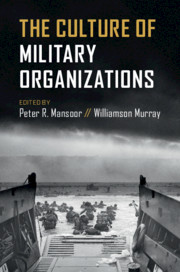Part II - Land Forces
Published online by Cambridge University Press: 05 October 2019
Summary
The American Civil War presented an exceptional state of affairs in modern warfare, because strong personalities could embed their own command philosophies into field armies, due to the miniscule size of the prior US military establishment. The effectiveness of the Union Army of the Tennessee stemmed in large part from the strong influence of Ulysses S. Grant, who as early as the fall of 1861 imbued in the organization an aggressive mind-set. However, Grant’s command culture went beyond simple aggressiveness – it included an emphasis on suppressing internal rivalries among sometimes prideful officers for the sake of winning victories. In the winter of 1861 and the spring of 1862, the Army of the Tennessee was organized and consolidated into a single force, and, despite deficits in trained personnel as compared to other Union field armies, Grant established important precedents for both his soldiers and officers that would resonate even after his departure to the east. The capture of Vicksburg the following summer represented the culminating triumph of that army, cementing the self-confident force that would later capture Atlanta and win the war in the western theater.
Keywords
- Type
- Chapter
- Information
- The Culture of Military Organizations , pp. 53 - 318Publisher: Cambridge University PressPrint publication year: 2019

